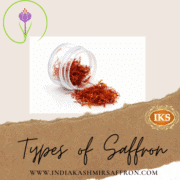How to Safely Include Saffron in Your Pregnancy Routine: Complete Comprehensive Guide
How to Safely Include Saffron in Your Pregnancy Routine – Introduction
How to Safely Include Saffron in Your Pregnancy Routine – Pregnancy is a transformative period in a woman’s life that demands special attention to diet and lifestyle. Among the many natural remedies and supplements that are often recommended during pregnancy, saffron stands out for its myriad health benefits.
Known for its vibrant color, unique flavor, and medicinal properties, saffron has been used in traditional medicine for centuries. However, it’s essential to understand how to safely incorporate saffron into your pregnancy routine to reap its benefits without any risks.
This comprehensive guide delves into the nutritional benefits of saffron, its potential risks, and safe ways to include it in your pregnancy diet.
Enhance Your Pregnancy Journey: Learn How to Safely Use Saffron!
The Nutritional Profile of Saffron – How to Safely Include Saffron in Your Pregnancy Routine
Saffron, derived from the flower of Crocus sativus, is a potent spice packed with a variety of nutrients. It contains vitamins and minerals that are crucial for both the mother and the developing fetus.
Key Nutrients in Saffron
- Vitamin A: Essential for the development of the heart, lungs, kidneys, and other vital organs of the fetus. It also supports the immune system of the mother.
- Vitamin C: A powerful antioxidant that protects cells from damage. It also aids in the absorption of iron, which is vital for preventing anemia during pregnancy.
- Folic Acid: Crucial for preventing neural tube defects in the fetus and supporting the formation of healthy red blood cells.
- Potassium: Helps maintain fluid and electrolyte balance, which is important for preventing muscle cramps and managing blood pressure.
- Calcium: Essential for the development of strong bones and teeth in the fetus and supports the mother’s bone health.
- Magnesium: Plays a role in muscle relaxation, reducing the risk of premature contractions and aiding in better sleep.
Health Benefits of Saffron During Pregnancy – How to Safely Include Saffron in Your Pregnancy Routine
Alleviating Morning Sickness
Morning sickness is a common issue faced by many pregnant women, especially in the first trimester. Saffron has natural anti-nausea properties that can help reduce the severity of morning sickness. Consuming saffron-infused milk or tea can provide relief from nausea and vomiting, making the early stages of pregnancy more comfortable.
Enhancing Mood and Reducing Anxiety
Pregnancy often brings about significant emotional and psychological changes. Hormonal fluctuations can lead to mood swings, anxiety, and even depression. Saffron is known for its antidepressant properties, thanks to its active compounds such as crocin and safranal. These compounds help increase serotonin levels in the brain, promoting a sense of well-being and reducing stress and anxiety.
Improving Digestion
Digestive issues such as bloating, constipation, and indigestion are common during pregnancy. Saffron aids in digestion by stimulating the production of digestive enzymes, which helps in breaking down food more efficiently. Its anti-inflammatory properties also soothe the digestive tract, reducing discomfort and promoting better gut health.
Supporting Heart Health
Maintaining cardiovascular health is crucial during pregnancy as the heart works harder to pump blood to both the mother and the developing fetus. Zaffran is rich in antioxidants that help reduce oxidative stress and improve blood circulation. It also helps in lowering cholesterol levels and managing blood pressure, thus supporting overall heart health.
Relieving Muscle Cramps
Muscle cramps and spasms are common during pregnancy, often caused by a deficiency of essential minerals such as potassium and magnesium. Saffron, being rich in these minerals, helps alleviate muscle cramps by relaxing the muscles and improving electrolyte balance. Regular consumption of saffron milk can provide relief from these painful cramps.
Promoting Better Sleep
Insomnia and sleep disturbances are frequent issues faced by pregnant women, especially in the later stages of pregnancy. The sedative properties of saffron help promote relaxation and improve sleep quality. Drinking warm saffron milk before bedtime can help induce sleep and ensure a restful night, which is essential for the overall well-being of both the mother and the baby.
Boosting Immunity
A strong immune system is vital during pregnancy to protect both the mother and the fetus from infections and illnesses. Saffron contains antioxidants such as vitamin C, which boosts the immune system by protecting cells from damage and enhancing the body’s ability to fight off pathogens. Regular consumption of saffron can help strengthen the immune system and maintain overall health.
Incorporate Saffron into Your Routine Safely – Find Out How!
Safe Ways – How to Safely Include Saffron in Your Pregnancy Routine
Saffron Milk
Saffron milk is one of the most popular ways to consume saffron during pregnancy. To prepare saffron milk, simply add a few strands of saffron to a glass of warm milk and let it steep for a few minutes. This soothing beverage can be enjoyed daily, preferably before bedtime, to reap its numerous health benefits.
Recipe for Saffron Milk
- Ingredients:
- 1 glass of milk
- 5-6 strands of saffron
- 1-2 tablespoons of honey (optional)
- A pinch of cardamom powder (optional)
- Instructions:
- Warm the milk in a saucepan over medium heat.
- Add the saffron strands to the warm milk and let it steep for 5-10 minutes.
- Stir in honey and cardamom powder if desired.
- Serve warm and enjoy.
Saffron Tea
Saffron tea is another excellent option for incorporating saffron into your diet. Add a pinch of saffron to a cup of hot water, along with a bit of honey and lemon for flavor. This refreshing tea can be consumed once or twice a day.
Recipe for Saffron Tea
- Ingredients:
- 1 cup of hot water
- 3-4 threads of saffron
- 1 teaspoon of honey
- A slice of lemon (optional)
- Instructions:
- Boil the water and pour it into a cup.
- Add the saffron strands and let it steep for 5-10 minutes.
- Stir in honey and add a slice of lemon if desired.
- Serve warm and enjoy.
Saffron in Cooking
Saffron can be added to various dishes to enhance their flavor and nutritional value. It can be used in rice dishes, soups, stews, and even desserts. Ensure to use saffron sparingly, as a little goes a long way in imparting its distinct flavor and benefits.
Recipe for Saffron Rice
- Ingredients:
- 1 cup of basmati rice
- 2 cups of water
- 5-6 saffron strands
- 1 tablespoon of ghee or butter
- Salt to taste
- A few whole spices (optional: cardamom, cloves, cinnamon stick)
- Instructions:
- Rinse the rice under cold water until the water runs clear.
- Soak the rice in water for 30 minutes, then drain.
- In a small bowl, soak the saffron strands in a tablespoon of warm water.
- Heat the ghee or butter in a saucepan over medium heat. Add the whole spices and sauté until fragrant.
- Add the drained rice and sauté for a couple of minutes.
- Pour in the water and the saffron-infused water, and add salt to taste.
- Bring to a boil, then reduce the heat to low, cover, and simmer for 15-20 minutes until the rice is cooked and fluffy.
- Serve warm and enjoy.
Saffron Supplements
For those who find it challenging to include saffron in their daily diet, saffron supplements are available in the form of capsules or tablets. However, it is essential to consult with a healthcare provider before taking any supplements, especially during pregnancy, to ensure the correct dosage and safety.
Boost Your Prenatal Wellness with Saffron – Get Started Today!
Potential Risks and Precautions – How to Safely Include Saffron in Your Pregnancy Routine
While saffron offers numerous benefits during pregnancy, it is essential to consume it in moderation. Excessive intake of saffron can lead to potential side effects such as dizziness, dry mouth, and in rare cases, contractions. It is recommended to use no more than 5-10 strands of saffron per day.
Consult with Your Healthcare Provider
Always consult with your healthcare provider before incorporating saffron into your pregnancy diet, especially if you have any underlying health conditions or are taking other medications. Your healthcare provider can provide personalized advice based on your individual health needs.
Monitor for Allergic Reactions
Although rare, some individuals may be allergic to saffron. If you experience any signs of an allergic reaction, such as itching, swelling, or difficulty breathing, discontinue use immediately and seek medical attention.
Avoid High Doses
High doses of saffron can have adverse effects and should be avoided. Stick to the recommended dosage and avoid consuming saffron in large quantities.
Conclusion
Saffron, with its rich nutritional profile and numerous health benefits, can be a valuable addition to a pregnant woman’s diet. From alleviating morning sickness and improving mood to supporting heart health and boosting immunity, saffron offers a holistic approach to prenatal care.
However, it is crucial to consume saffron in moderation and under the guidance of a healthcare professional to ensure a safe and healthy pregnancy. By incorporating saffron into your daily routine through saffron milk, tea, or cooking, you can enjoy its benefits and promote overall well-being for both you and your baby.
Experience the Benefits of Saffron for Expectant Mothers – Buy Now!







 WHAT EXACTLY IS ORGANIC SAFFRON? Types of Saffron.
WHAT EXACTLY IS ORGANIC SAFFRON? Types of Saffron.





Leave a Reply
Want to join the discussion?Feel free to contribute!